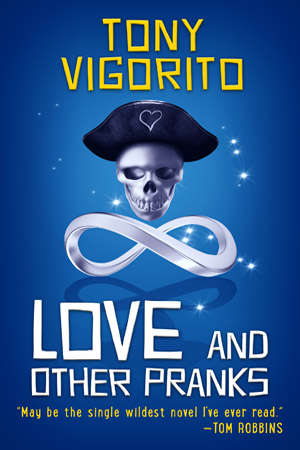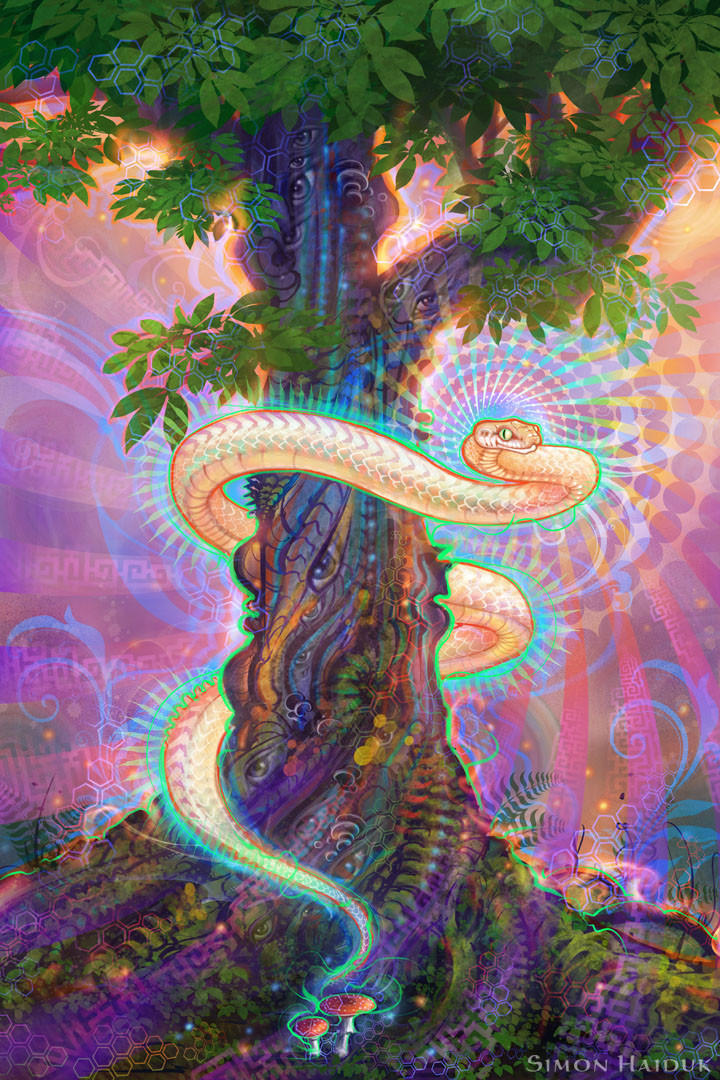 It may interest some of you to know that, thus far, Just a Couple of Days has been translated into Spanish, Italian, Polish, Turkish, French, and Hebrew. Curious about the process of translation, I did some research and happened across a wordreference.com discussion board where the Turkish translator of Just a Couple of Days was inquiring if anyone could explain what “wise-assed” specifically meant. Thence ensued a lively discussion with contributors from the US, France, Turkey, Germany, Ireland, and Israel attempting to draw distinctions between a wise-ass, a smart-ass, a smart-aleck, a wise-guy, as well as a klugschitter (a German word whose literal English translation is wise-shitter), which of course led to a spirited debate as to the proper distinction between the verb forms of shit and bullshit.
It may interest some of you to know that, thus far, Just a Couple of Days has been translated into Spanish, Italian, Polish, Turkish, French, and Hebrew. Curious about the process of translation, I did some research and happened across a wordreference.com discussion board where the Turkish translator of Just a Couple of Days was inquiring if anyone could explain what “wise-assed” specifically meant. Thence ensued a lively discussion with contributors from the US, France, Turkey, Germany, Ireland, and Israel attempting to draw distinctions between a wise-ass, a smart-ass, a smart-aleck, a wise-guy, as well as a klugschitter (a German word whose literal English translation is wise-shitter), which of course led to a spirited debate as to the proper distinction between the verb forms of shit and bullshit.
(The following interview with Tom Robbins was originally published in Origin Magazine and Reality Sandwich.)
In addition to his memoir, Tom Robbins is the author of nine off-beat but popular novels and a collection of short writings. All of his books are currently in print. He lives in his own time zone north of Seattle.
Tony Vigorito is the author of the critically-acclaimed underground hits Just a Couple of Days and Nine Kinds of Naked, as well as the recently-released Love and Other Pranks, of which Tom Robbins had this to say:
“Love and Other Pranks may be the single wildest novel I’ve ever read. It rings the cosmic gong on so many levels, turns so many stereotypes inside out, one scarcely knows what to do but hold on and enjoy the ride. And enjoy it I did.” —TOM ROBBINS (read more)
Tony Vigorito: Alan Watts once wrote that we actually haven’t the answers to the most ordinary of questions, such as “What’s going on?” or “Where am I?” So let’s start with these allegedly mundane inquiries. What’s going on? And where are we?
Tom Robbins: Christians, and some Jews, claim we’re in the “end times,” but they’ve been saying this off and on for more than two thousand years. According to Hindu cosmology, we’re in the kali yuga, a dark period when the cow of history is balanced precariously on one leg, soon to topple. Then there are our friends in the counterculture who believed that in December 2012 we were in for a global cage-rattling which, once the dust settled, would usher in some great spiritual awakening. I hope they’re bearing up well under the disappointment.
 (The following essay was originally published on Reality Sandwich in 2010.)
(The following essay was originally published on Reality Sandwich in 2010.)
There are these rumors—perhaps you have heard them—rumors of ancient Mayan calendars and galactic cycles, lots of loose talk about sunspots and geomagnetisms, wide-eyed whispers about aliens and dimethyltryptamine, knowing nods concerning crop circles and conspiracies. An emergent and presumptive science of rapture heralds an onrushing apocalypse, and shadows cast backward through time are already stretching toward our sunset.
Enter to win a large (28″ x 42″),
limited edition, archival canvas
giclée print of Eden’s Dream
(valued at $600) below!
Eden’s Dream is a painting by Simon Haiduk inspired by the serpent from Love and Other Pranks, the epic story TOM ROBBINS called “the single wildest novel I’ve ever read.”
To enter the giveaway, simply answer the following riddle:
What were Dayenu’s sister’s last words?
HINT: The answer is revealed in the brief excerpt below.
Winner will be randomly selected after September 30, 2019 from among those who provide the correct answer.
Return to beginning

80
It is an unfortunate artifact of narration that some characters seize the foreground of our attention while others recede into the invisible background, not out of irrelevance, mind you, but out of the simple limitations of storytelling. Consider, for example, how engaged you are with the struggles of the story of your own life, and the stories of those near and dear to you, and how oblivious you are to the struggles of every other story passing you by. No less than you are they, for certain, captured in the selfsame life-and-death struggle, as a matter of simple fact, and yet, who has time to regard that?No less than you are they, for certain, captured in the selfsame life-and-death struggle, as a matter of simple fact, and yet, who has time to regard that?
And look now, four pirates—all of them brothers and sisters to the free spirit, all of them true to the code of equality and honor, all of them friends of God and enemies of the world—four pirates have here perished under extreme prejudice. Their names were Jurakán, Impulse, Hosanna, and Dayenu, but who in the name of Davey Jones were they? If every life is its own story, and each person is thereby their own stouthearted hero or cravenly enemy, it can only be with deep regret that we are unable to record the lives and swashbuckling adventures of every Eleusinian who once feasted their feet upon those fair sands of the Caribbean Sea. Despite these failures, as the surviving crew of Eleusis releases the remains and effects of their shipmates to the indifferent depths of the sea, let us at the least pull the deceased’s index cards from the akashic records, that universal library of all experience, and salute them so long as their souls sail away across the cosmos.
Let us begin with Jurakán, a mestizo sailor of Spanish and Mayan descent, and a good Christian man who’d tried for most of his life to make an honest go at it. Raised in a colonial mission, he believed in the teachings of Christ until the day he died, even though life had long ago dismayed him with the garish hypocrisies of his fellow Christians. Jurakán had first encountered the Eleusinians on one of their earliest plunders, when they overtook the galleon upon which he was serving, hauling Aztec treasure from the Yucatán to a Spanish fort in Cuba, there to assemble in a convoy for the voyage to Spain. Though their approach had been bare teeth and bloodthirsty, once the Eleusinians were aboard and all weapons had been secured, the pirates idled the morning away chattering on about the breathtaking beauty of that morning’s sunrise, sharing tobacco, pointing out the schools of fish silvering along in the crystal-clear waters, and in general being the most genial people Jurakán had ever encountered.
As it turned out, the Eleusinians had been seeking a sparkle in the eyes of another in order to swell the ranks of their own crew, and while everyone else met their eyes with resentment and murderous intent, when they met the eyes of Jurakán they immediately invited him to join them. Jurakán took one last look at the corrupted souls populating his vessel, not a man among them having appreciated that morning’s truly spectacular sunrise as anything other than a stab upon their collective hangover, and tossed in his lot with the Eleusinians. And never for a moment did Jurakán regret it, having finally found among their community the Christ he’d been seeking his entire life shining right there within his own heart, and when he died shielding Noa from a blast of case shot across their deck (and thereby permitting Noa to successfully light the catapult that assured their escape), Jurakán’s soul burst out of his body as if it’d been holding its breath its entire life, and his last words—gasped only to himself—were, “I had no idea how much I existed.”And his last words—gasped only to himself—were, “I had no idea how much I existed.”
And then there was Impulse, a German adventurer. Temple von Impulse was the full sobriquet he’d devised for himself, and Impulse was a bounty hunter by trade, a bounty hunter who ultimately realized the outlaws he was hunting were leading far more adventurous lives than the obese elite who dangled fat bounties over their heads and sought to enslave every last outpost of freeborn humanity. As Impulse considered adventure to be the highest ambition of the human experience, he could no longer in good conscience capture those whose only crime appeared to be the adventure of freedom. Impulse had even had Flaming Jane in his sights during the Eleusinians’ first visit to Boca Diablo, and could have taken her head and collected the bounty, but true to his name, Impulse was keen on following his impulses as the surest path to high adventure, and it was just such an impulse that caused him to adjust his aim at the last second and snipe instead the daggered hand that was just then about to stab the heart out of Flaming Jane. It’d been one of Half-Ass McJanky’s assassins, and after relieving the assassin of his last breath and properly introducing himself to Flaming Jane and her comrades, Impulse expressed the philosophy that moved his life and wondered if he might accompany them toward a life of higher adventure.
The charm of his philosophy—and the delight with which he articulated it—guaranteed his acceptance, and Temple von Impulse was thenceforth known to spend his days holding breathlessly forth upon whatever topic had most recently fascinated him, having mostly to do with notions of the body as a temple and the consequent importance of consuming various kelps, seaweeds, and algae toward achieving a maximum vitality. And in between Eleusis’s occasional skirmishes, Impulse had a knack for regaling in detail every random happenstance that occurred as well as how following their impulses in the heat of their battles had guided them through flawless and unscathed.
But alas and of course, Temple von Impulse would not live to retell his final skirmish at sea, though it was nonetheless an impulse that compelled him to hit the deck just before the sweep of case shot, and another impulse that compelled him then to stand and take a shot at a sniper he’d spied in the enemies’ crow’s nest, winging him only but hesitating the sniper’s arrow just long enough for him to miss his mark upon Flaming Jane. In taking the shot, however, Impulse undefended his torso, and when an arrow thwacked through his heart, Impulse staggered to the deck, astounded that death had found him. Glancing begrieved upon the arrow’s ruination of his bodily temple, the cries of battle fell faraway and fast, and as Eleusis surged forward from the release of its dragline and the snapping ascent of its second set of sails, Impulse felt his soul surge forth from its temporary temple, and as his point of view expanded he saw all at once how his impulse was true, how it saved another’s life and served the greater good, how his death would deepen the hearts of his mates, and opening his dying eyes he discovered the setting sun and staring into it he saw how this moment was in fact the greatest adventure of his entire life, and as his spirit roared Valhalla he soared into that great white light, and whatever last words he might have mustered could only surrender under the fathom of his newborn smile.And as his spirit roared Valhalla he soared into that great white light, and whatever last words he might have mustered could only surrender under the fathom of his newborn smile.
And finally, there was Hosanna and Dayenu, sister and brother, fraternal twins born in a Cimarron settlement in Panama, among a community of runaway slaves that took its name from a native Taino word meaning “flight of the arrow.” Hosanna was the older sister, born fist first, and her name expressed an adoration of her existence. Dayenu was the younger brother, born with his grip firmly upon his sister’s ankle, and his name expressed overwhelming gratitude, as Dayenu is a Hebrew word literally translated as “it would have been enough for us.”
Hosanna and Dayenu fought an inseparable tangle until the age of five, when sick of their incessant bickering one day their mother grabbed ahold of them and made them stand across from one another, directing them that they were to take turns slapping each other. Terrified, their slaps were timid and feathered in the face of this frightful maternal command, and all the more so as their mother heckled them to slap each other harder. “Now why ain’t you slappin’ on him harder now gawdammit? Go on now, slap the crooked right outta his teeth!” she goaded Hosanna, and to Dayenu, “Now go on then, boy, give it to her good now gawdammit!” Hosanna and Dayenu soon began sobbing under their cruel circumstance, blubbering eventually, till their mother shook her head severe and wagged a stern finger in front of their tearful faces. “Now you remember this now next time you take to bickerin’ gawdammit!” she reprimanded. “There’ll be plenty enough fools in this world that wants to fight you, and there ain’t no sense to be found in fightin’ on each other. Now you remember this now. You’re brother and sister and you love each other more than you even understand. Now go on then now, Mama loves you now, give each other a hug now.”
And their hug was tearful and true, and never again would they be found fightin’ on each other, for it wasn’t a year before slave traders raided their Cimarron settlement, kidnapping them and selling them both into slavery, but they were never separated and so they never failed to defend each other brother and sister. Thus it was that many years later they found themselves aboard the Queen Elizabeth when Flaming Jane organized their mutiny over Admiral Jasper. For Hosanna and Dayenu, that mutiny was the reclamation of their kidnapped childhood, and no one glared a more ferocious gaze than them as they circled their backs in battle, vowing that no one not ever again would cross the perimeter of the soul they shared.
And they kept this vow till the day that they died, when manning their cannon under fire, Hosanna and Dayenu were savaged by the sweep of case shot across their deck. Dayenu realized what was about to happen and leapt to shield his sister at the same instant that Hosanna leapt to shield him.
“Brother!” said she.
“Sister!” said he, and neither of them succeeded in shielding the other as the shrapnel seared across their profile in embrace, and moments later when Eleusis lurched from the force of its dragon cannon firing from its bow their torn bodies toppled, Dayenu keeling overboard first, and Hosanna catching a final grip upon her brother’s ankle as they fell not into the churning sea but into the luminous arms of their ancestors, welcoming them into the Garden that never once knew the sweat of a slave, and cheering their lives louder than the sun could ever shine.
Enter to win a large (28″ x 42″),
limited edition, archival canvas
giclée print of Eden’s Dream
(valued at $600) below!
Eden’s Dream is a painting by Simon Haiduk and inspired by
Love and Other Pranks,
the epic story TOM ROBBINS called “the single wildest novel I’ve ever read.”
For a spectacularly animated visual treat, view the video below or click on the image above to view the animated gif.

